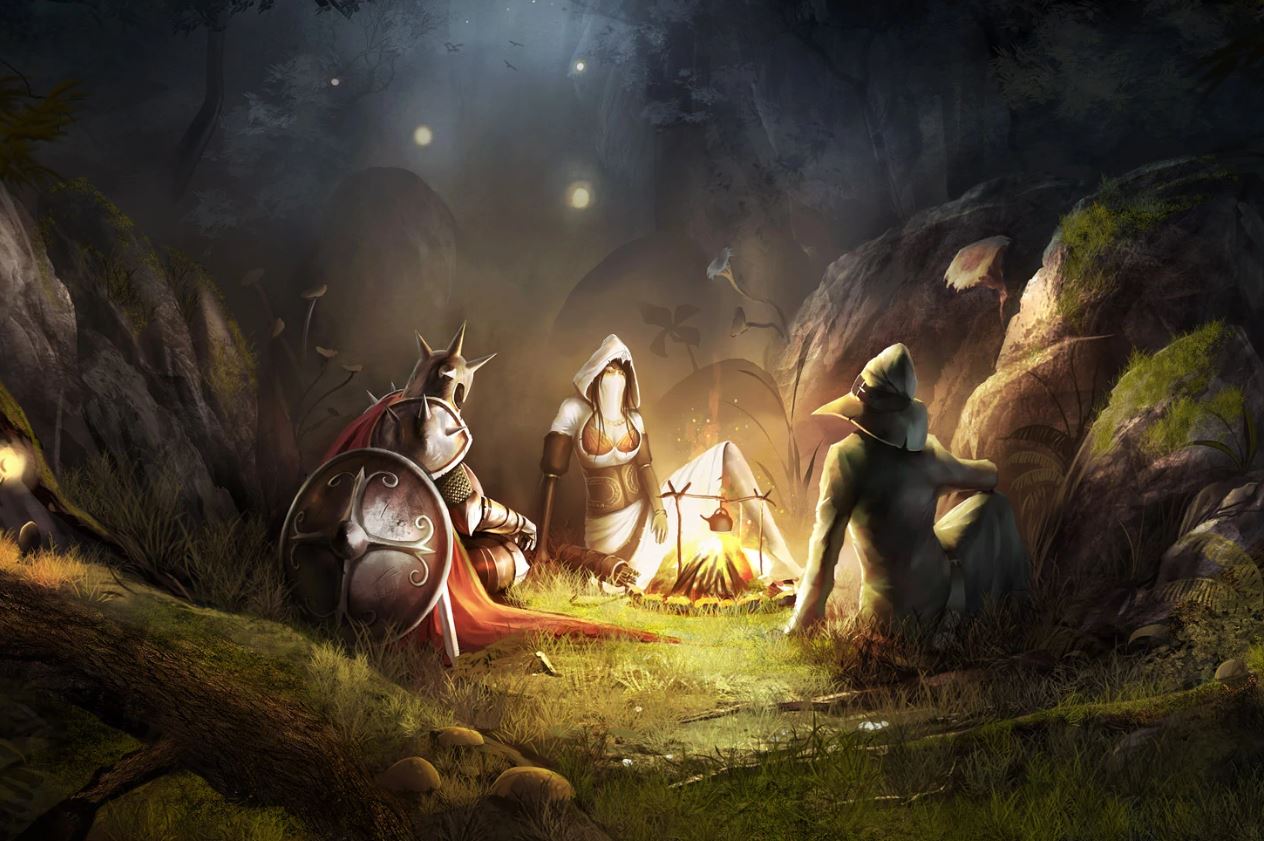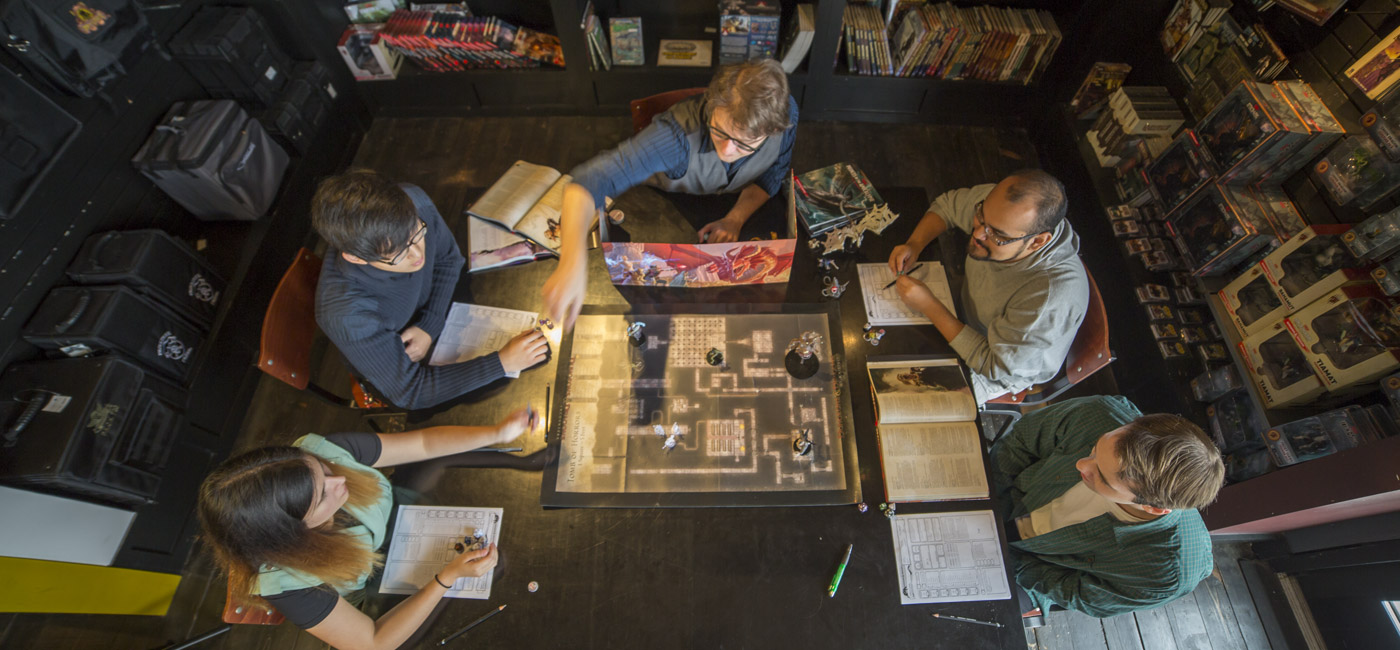One of the best features of any RPG is the feeling of progressing a character. Within any kind of RPG you play today, whether it’s a video game or a modern tabletop game, you will find the origin of its progression system within Dungeons and Dragons.
D&D has been around for a long time now, having first been introduced to the world in 1974 by Gary Gygax. Since then it has grown into one of the most popular RPGs on the market, with over 20 million copies sold.
It was originally designed to be played using paper and pencils, but later became available in different forms of electronic media, and in modern-day is often played over the internet with the help of websites such as Roll20 and DnDBeyond.
The first edition of D&D was published in 1977, and since then there have been many editions, each adding new content and mechanics to the game.
The fifth edition, commonly known as ‘5e’ is the most popular ruleset that people play under today, and if you’re new to this edition you might be wondering about how the progression system works.
How exactly do you level up? What feats does your character have to do before they can gain new spells, class traits, and abilities?
Whether you’re a fledgling DM or a player about to start their very first campaign, you’ve come to the right place! In the guide below we’re going to tell you everything you’ll need to know about how to level up in 5e DnD.
We’re going to be taking you through everything you’ll need to know so that you can plan ahead and build your character into the noble paladin or cunning rogue that they were always supposed to be.
Leveling Up – The Basics
Through the years there have been many different types of XP gained throughout the various editions of D&D, but for our purposes here we’re going to be focusing on how XP and leveling works in the 5th Edition of the game.
It’s also worth noting before we continue, that you might find there are different rules regarding XP and leveling up in your own campaigns, as sometimes Dungeon Masters are forced or inclined to change up the rules to help them tell their story in the best way they can.
The 1st Level And Beyond!
All characters in 5E DnD are bound to adventure and get into various heroic (or perhaps anti-heroic) situations. You might battle monsters, solve mysterious, or brave perilous dungeons.
The knowledge and experience your character gains is represented with XP. Once you get enough XP, your character will advance to the next level.
Depending on the class you’ve picked, there are a lot of different perks that you’ll be offered. For example, if you’ve picked the rogue class, at the 2nd level you will be able to use the skill ‘cunning action’.
Cunning action allows you to perform an extra action within combat including dash, disengage or hide. Many rogues then use this within combat to their advantage.
Sometimes when you gain a level you will be offered a straight ability point increase, which will allow you to build your character’s raw stat numbers and make them more talented in specific areas.
Every time you level you are awarded an additional Hit Die – which allows you to reset your hit points when resting.

How Much XP Do I Need To Level Up?
So now let’s answer the title question – just how much XP do you need to level up? In the fifth edition, there is a simple answer, but depending on the kind of campaign you’re playing, you might want to contact your DM to see if there are any differences.
However, if you want to know the traditional numbers within 5e, check the chart below!
| Experience Points | Level | Proficiency Bonus |
|---|---|---|
| 0 | 1 | +2 |
| 300 | 2 | +2 |
| 900 | 3 | +2 |
| 2,700 | 4 | +2 |
| 6,500 | 5 | +3 |
| 14,000 | 6 | +3 |
| 23,000 | 7 | +3 |
| 34,000 | 8 | +3 |
| 48,000 | 9 | +4 |
| 64,000 | 10 | +4 |
| 85,000 | 11 | +4 |
| 100,000 | 12 | +4 |
| 120,000 | 13 | +5 |
| 140,000 | 14 | +5 |
| 165,000 | 15 | +5 |
| 195,000 | 16 | +5 |
| 225,000 | 17 | +6 |
| 265,000 | 18 | +6 |
| 305,000 | 19 | +6 |
| 355,000 | 20 | +6 |
Specializing
Next up we want to talk about some specific milestones that can be important to consider when planning and building your character.
Using the rogue class as an example from earlier, we can see that at the 3rd level they get the opportunity to specialize into a roguish archetype, and can choose between Arcane Trickster and Thief.
Depending on what kind of character you’re looking to roleplay as, either of these choices can have massive implications for how your character will interact with the world and deal with problems they might face out there on the road.
Unless you make specific deals with your party/Dungeon Master, these choices are usually permanent and will change your overall experience of the campaign you’re in, so make sure you think carefully!
Leveling Multi-Classes
If you decide to play multi-classed characters, it’s important to remember that each class has its own progression path. So even though you may have chosen to play as both a Rogue and Wizard, you won’t necessarily be gaining levels in both classes simultaneously.
Final Thoughts
So there you have it. Of all the modern RPGs available in the modern world, the progression system of DnD is fairly straightforward.
We hope that this guide has acted as a good starting point for understanding the ruleset and that you’re not much more comfortable about the options you have available to your character as they grow and get into all kinds of trouble out there.
If you still have some questions, check below for our extensive FAQ section that has been written to help answer some of the most common questions around XP and leveling up within 5e.

Frequently Asked Questions
What Is The Level Cap In D&D?
The level cap in D&D is 20, and most DMs playing within the 5th Edition will not allow you to pass this. However, there are times when you might find this rule being stretched or changed, depending on whether or not the story requires it.
Which Class Is Best For A New Player?
D&D is all about roleplay, so there’s no real ‘best class’ for a new player, there are only different levels of complexity. A fighter is generally more simplistic than something like a monk or a druid, but that’s not to say you should pick it.
One of the best things about D&D is that it is a game where individual classes can become simple or complex depending on how you build them.
We generally suggest you pick something that you will enjoy – the roleplay aspects are more important than stats, abilities and min-maxing.
To help new players decide, you can check out our guide to picking which D&D character class to play.
What Are The Benefits Of Playing As A Multiclassed Character?
There are many benefits to multiclassing, including:
- You gain access to more spells
- Your character becomes more versatile
- You can learn new skills faster
- You can increase your ability scores






